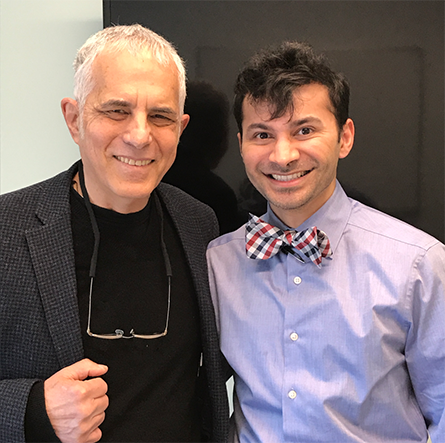
Dr. Utkarsh H. Acharya, DO, FACP took great care of me during my CAR-T therapy as an outpatient at the Seattle Cancer Care Alliance (SCCA)/HUTCH and as an inpatient twice at the University of Washington Medical Center (UWMC). For that I am forever grateful.
He is now the Program Director, Hematology-Oncology Fellowship Program, DFCI (Dana Farber Cancer Institute)/SEMC and an Attending Physician, Hematologic Malignancies, Dana Farber Cancer Institute and an Attending Physician, Cellular Therapy, Brigham & Women’s Hospital.
I, like may others, simply call him Utty,
This is the third and final part of my interview with Utty concerning CAR-T therapy.
What do see as the biggest unanswered questions?
Given how nascent this field is, the unanswered questions are plenty and dependent on the scenario. In my opinion, the biggest unanswered question is why do some patients respond to CAR-T cells while others do not. Additionally, in patients with hematologic malignancies, what is the definitive role of consolidative transplantation after CAR-T cell therapy in patients who respond to treatment and is there a way of reliably inducing durable responses with CAR-T cells to obviate the need for transplant all together. Furthermore, could the efficacy of CAR-T cell therapy be optimized by using it in an earlier line setting given the theoretic concern of exhausting T-cells with extensive chemotherapy (especially in high risk patients who would be eventual CAR-T candidates based on available data)? Is there a relationship between mutational burden and response rates with CAR-T cells as has been reported with checkpoint inhibitors among patients with melanoma or lung cancer? I know so many of the above are under investigation and there are so many other questions but I would likely bore your readers by going on.
Where do you see immunotherapy in 5 years?
I see immunotherapy with a bright future and the hopeful potential to induce deep meaningful remissions in even patients with aggressive diseases based on what we have seen thus far. While I do not think that immune based therapies will completely eradicate the need for chemotherapy, they may be used in earlier lines as we have already seen with checkpoint inhibitors in melanoma (and several other solid tumors to date). I suspect that CAR-T cells may be used in earlier lines in various settings and am hopeful that we will become better at projecting potential outcomes and new strategies to mitigate treatment related toxicities.
Any final comments?
I think that oncology is an exciting field with much promise and hope for cancer patients. The notion of “curing” cancer has been somewhat sensationalized in the media but based on the exponential developments in precision medicine through collaborative research has the potential to drastically influence outcomes for the better.
In the first question, Dr. Acharya addresses some unanswered questions around CAR-T, many of which are active areas of research.
Who is most likely to benefit?
What is the role of transplant to consolidate CAR-T therapy?
Cancer consolidation therapy is done with the goal of taking a patient who is already in remission and wiping out every last cancer cell. In this context that ask whether we should follow-up one potentially fraught cellular therapy, CAR-T with another, a hematopoietic stem cell (bone marrow) transplant.
When ibrutinib was first being used and we didn’t know about its long term benefits for many, it was seen by some as a bridge to transplant, a potential curative treatment, but that is rarely done these days. It’s rarely needed. Will the same pattern be seen with CAR-T? Will the responses be deep and durable enough on their own?
So many questions., so few answers.
While this may be the third of later generation of CAR-T, it is the first one that works. With researchers such as Utty building on what has been already learned, we can continue to answer the unanswered questions and most importantly improve CAR-T patient outcomes.
I for one am very grateful of the progress already made and very optimistic about the future.
Stay strong
Brian Koffman MDCM DCFP, DABFM, MS Ed
Co-Founder, Chief Medical Officer and Executive VP, CLL Society Inc.

















